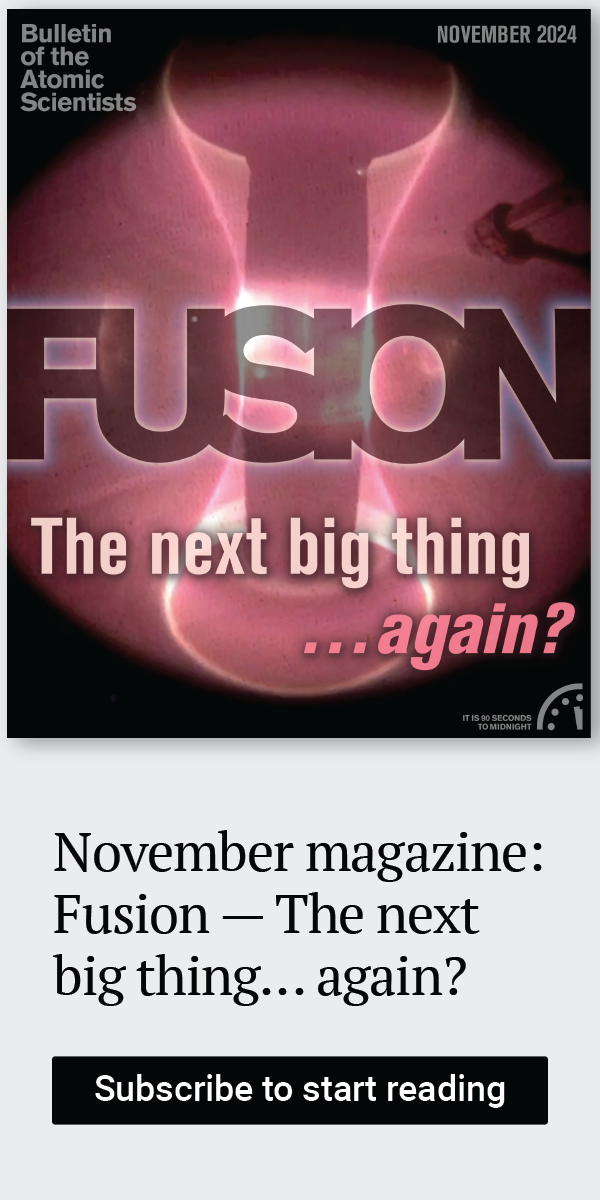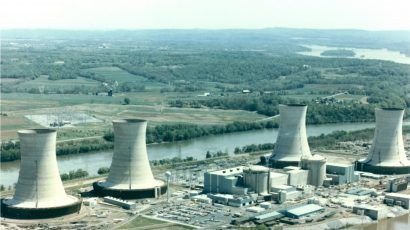Thorium: Not a near-term commercial nuclear fuel
By Andrew T. Nelson | September 1, 2012
In the wake of the disaster at the Fukushima Daiichi Nuclear Power Station, opinion makers and policy makers, alike, have worked internationally to pique interest in thorium as a possible alternative fuel for commercial nuclear reactors. The key question posed has been: Could a thorium-based fuel provide advantages if deployed in current reactors? A full thorium-driven cycle used to produce and use uranium-233 for power generation has been understood to possess a range of benefits for many decades. To fully assess the practical utility of thorium use in existing light water reactors, it is necessary to critically dissect the promoted benefits of the thorium fuel cycle. The potential advantages of thorium are relatively small, the author writes, when viewed through the lens of current infrastructure and economic and political realities.
Together, we make the world safer.
The Bulletin elevates expert voices above the noise. But as an independent nonprofit organization, our operations depend on the support of readers like you. Help us continue to deliver quality journalism that holds leaders accountable. Your support of our work at any level is important. In return, we promise our coverage will be understandable, influential, vigilant, solution-oriented, and fair-minded. Together we can make a difference.
Issue: Bulletin of the Atomic Scientists Volume 68 Issue 5
Keywords: Thorium, light water reactors, nuclear fuel, thorium uranium dioxide
Topics: Uncategorized















